When a board faces a crisis, clear and effective communication becomes paramount. Crafting a letter that addresses concerns, provides transparency, and reassures stakeholders can significantly help restore trust. It's vital to strike the right tone and convey a message of unity and commitment to resolving the issue at hand. Curious to discover how to effectively structure such a letter? Read on to explore our comprehensive template and expert tips!
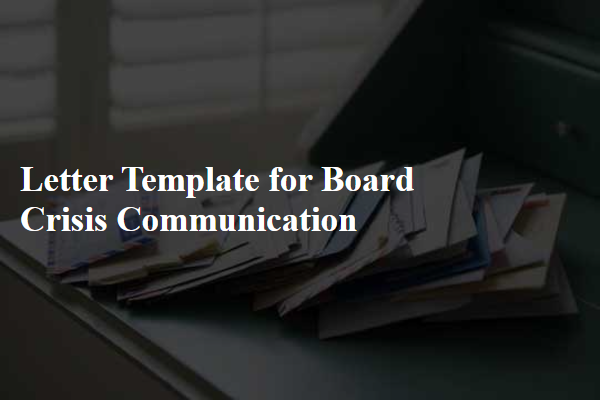
Clarity and Conciseness
In a corporate crisis, clarity and conciseness are crucial to communicate effectively with stakeholders and maintain trust. During recent events, specifically the data breach affecting approximately 10,000 customer accounts at XYZ Corporation, a clear message outlining the situation is essential. Stakeholders need to understand the timeline of the breach, actions taken to mitigate damage, and steps for future prevention. Clear statements regarding customer data security, such as encryption standards and audit controls, reinforce commitment to safeguarding sensitive information. Providing precise contact information for customer inquiries fosters transparency and reassures affected individuals about support avenues during the ongoing investigation. The communication must therefore prioritize straightforward language, avoiding jargon to ensure comprehension across different audience segments.
Transparency and Honesty
In times of organizational crisis, transparency and honesty play crucial roles in maintaining trust with stakeholders. Effective communication should include a clear outline of the issue at hand, detailing specific events leading to the crisis, such as recent financial setbacks or operational failures. Providing numerical data, like the drop in quarterly earnings by 25%, helps illustrate the severity of the situation. Stakeholders should be informed about the immediate steps being taken, including the establishment of a crisis management team and engagement of external consultants for independent assessments. Ensuring regular updates, such as weekly progress reports or scheduled Q&A sessions, fosters an environment of openness. Furthermore, demonstrating a commitment to accountability, such as acknowledging mistakes made by leadership, reinforces the organization's dedication to improving practices and restoring trust.
Empathy and Reassurance
In response to the recent developments affecting our organization, a crisis communication strategy is crucial to maintain transparency and uphold trust among stakeholders. It is essential to communicate with empathy, acknowledging the concerns of employees and shareholders. Understanding the emotional impact of the situation helps foster a supportive environment. Providing reassurances regarding our commitment to addressing the issues at hand and emphasizing our resilience can reassure stakeholders of our dedication to overcoming challenges. Outlining concrete steps we are taking to navigate the crisis, such as implementing new policies or forming task forces for rapid response, demonstrates our proactive approach. Continual updates will keep everyone informed and engaged, reinforcing our collective strength during these turbulent times.
Action Plan and Steps
In organizational crisis management, a well-defined action plan is essential for effective communication with stakeholders. The first step involves assembling a crisis communication team, typically including key members from marketing, legal, and public relations departments. This team must develop key messages outlining the nature of the crisis, which might be an event like a data breach or product recall affecting public trust and safety. The next phase requires identifying all affected stakeholder groups, such as employees, customers, investors, and regulatory bodies, and crafting tailored communication strategies for each group. Timely updates should be disseminated via various channels, including press releases and social media, ensuring consistent messaging and transparency. Additionally, post-crisis evaluation meetings must occur to assess the effectiveness of the response and adjust future crisis protocols based on lessons learned from the incident. Overall, thorough documentation of the situation and responses is crucial for accountability and improvement in future crisis management.
Contact Information and Support Channels
In crisis communication scenarios, companies must maintain clear lines of communication with stakeholders, ensuring that accurate information reaches them promptly. Important contact information includes a dedicated crisis hotline (available 24/7), alongside email support (support@companyname.com) specifically for inquiries related to the crisis. Additionally, a dedicated webpage (companyname.com/crisis) should provide real-time updates and FAQs to address common concerns. Social media channels, such as Twitter and Facebook, offer platforms for immediate updates and community engagement. The focus should remain on transparency and support, fostering trust through accessible communication during challenging times.
Letter Template For Board Crisis Communication Samples
Letter template of board crisis communication for internal stakeholders.
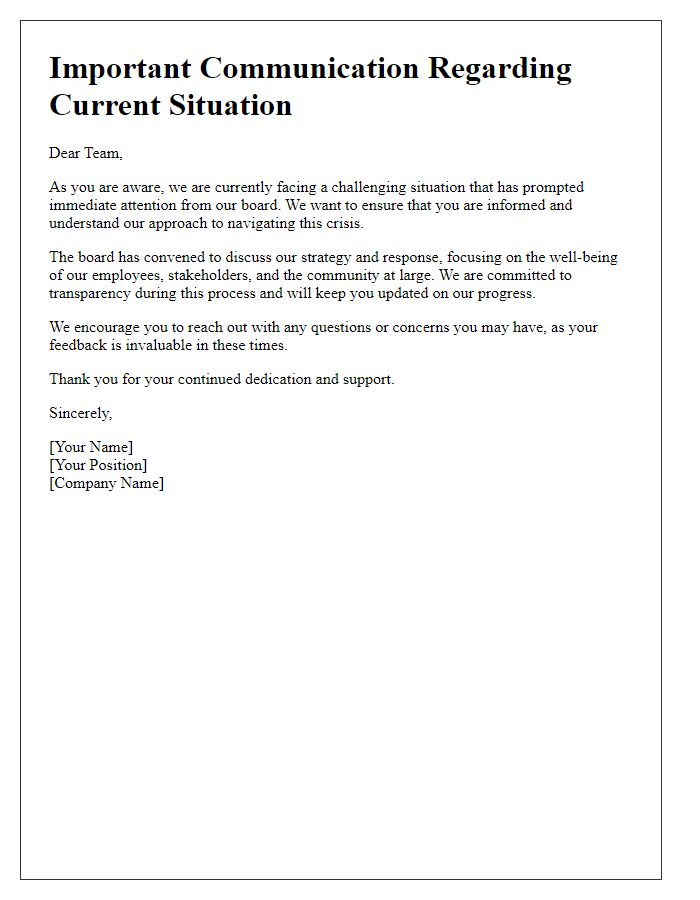
Letter template of board crisis communication addressing external partners.
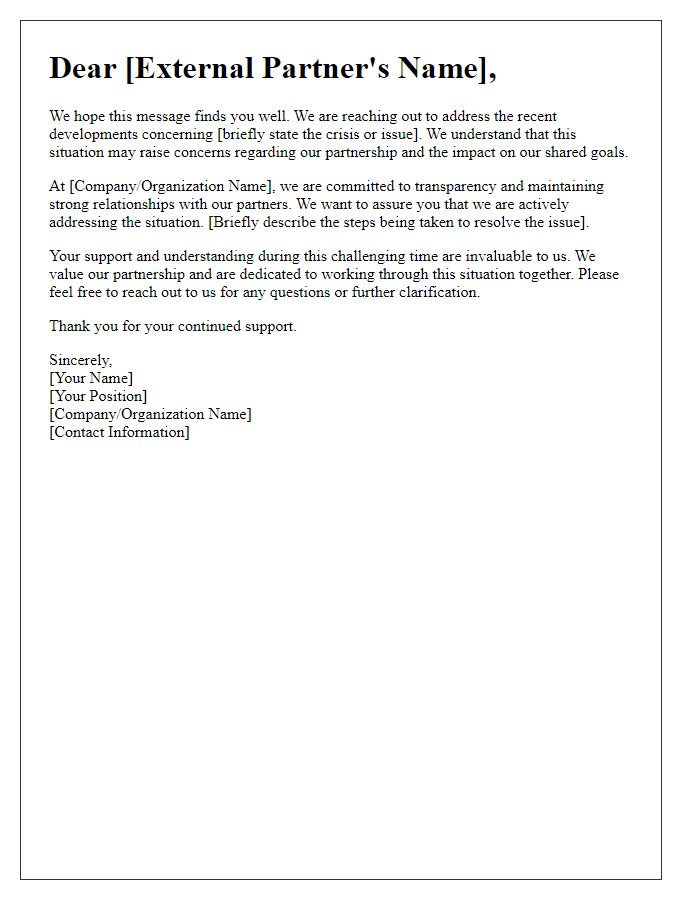
Letter template of board crisis communication focusing on media relations.
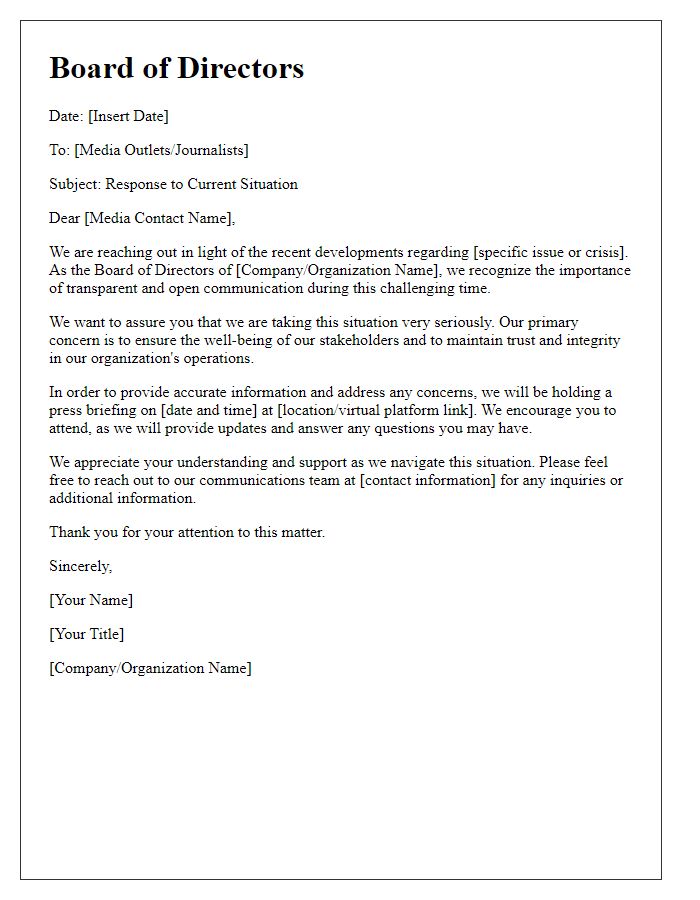
Letter template of board crisis communication for addressing customer concerns.
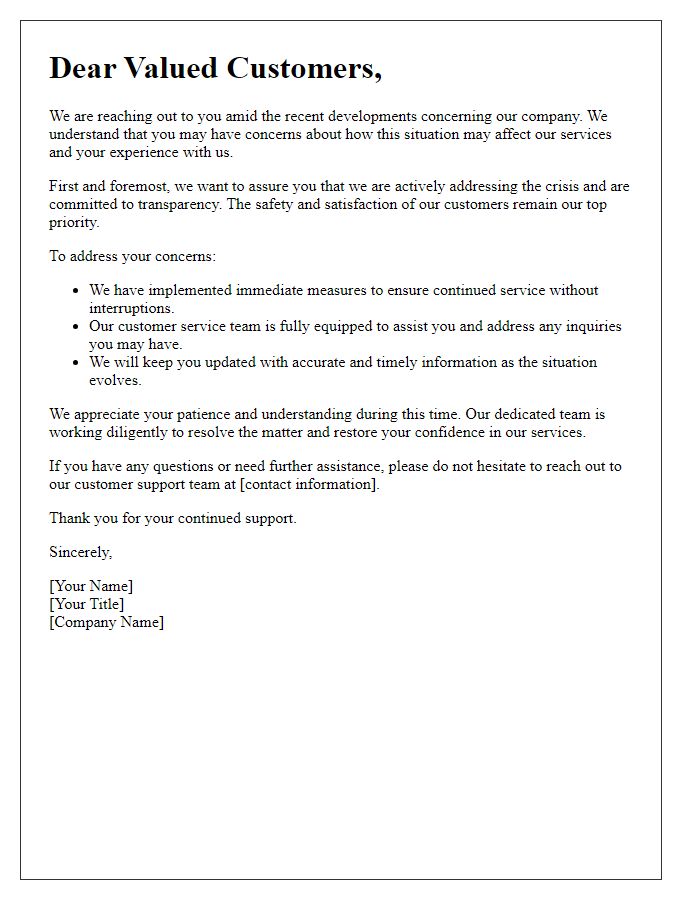
Letter template of board crisis communication during a financial downturn.
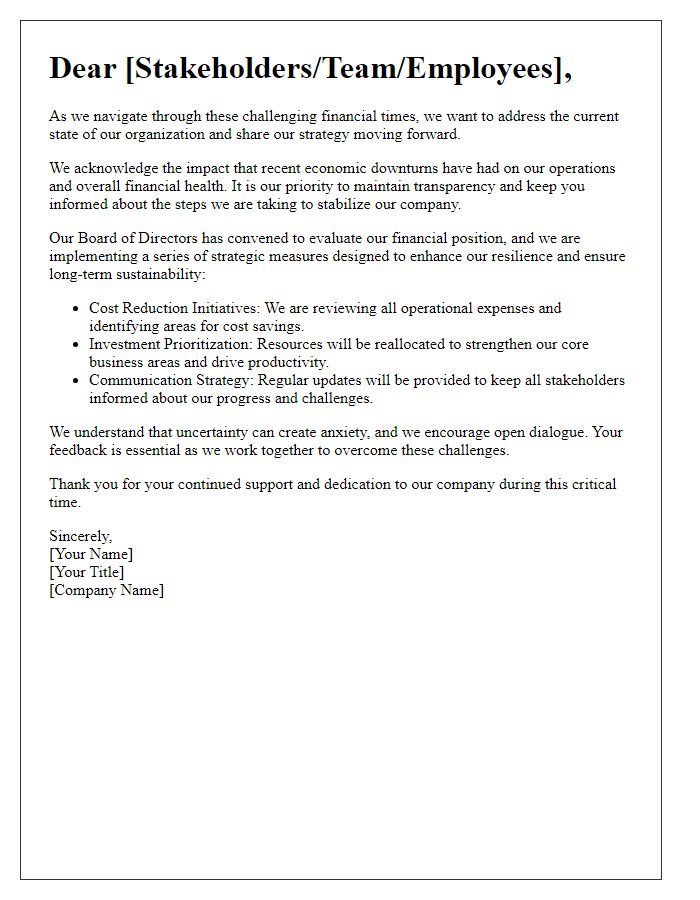
Letter template of board crisis communication in response to regulatory issues.
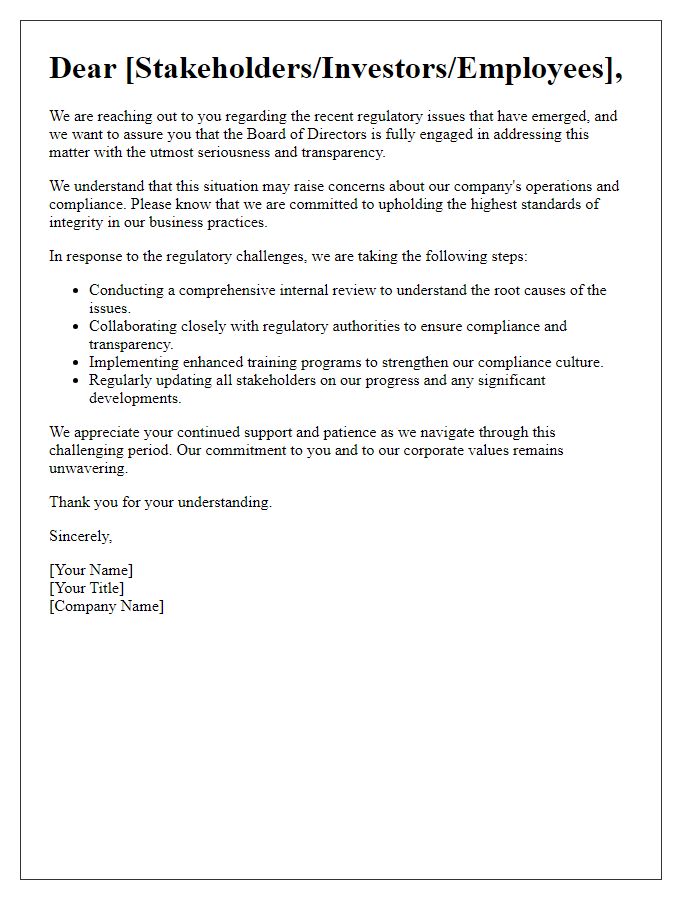
Letter template of board crisis communication for public health emergencies.
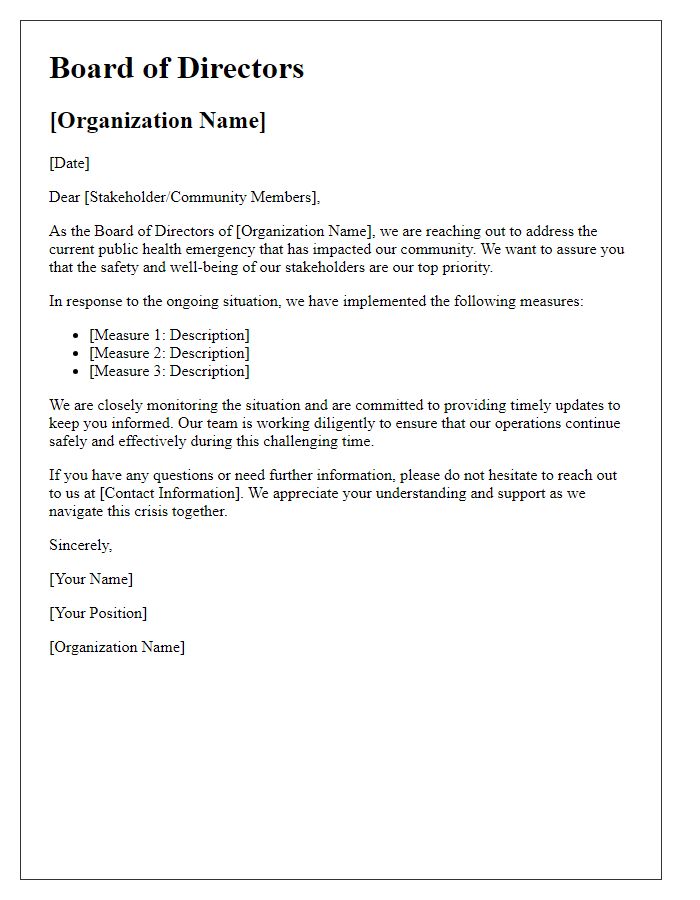

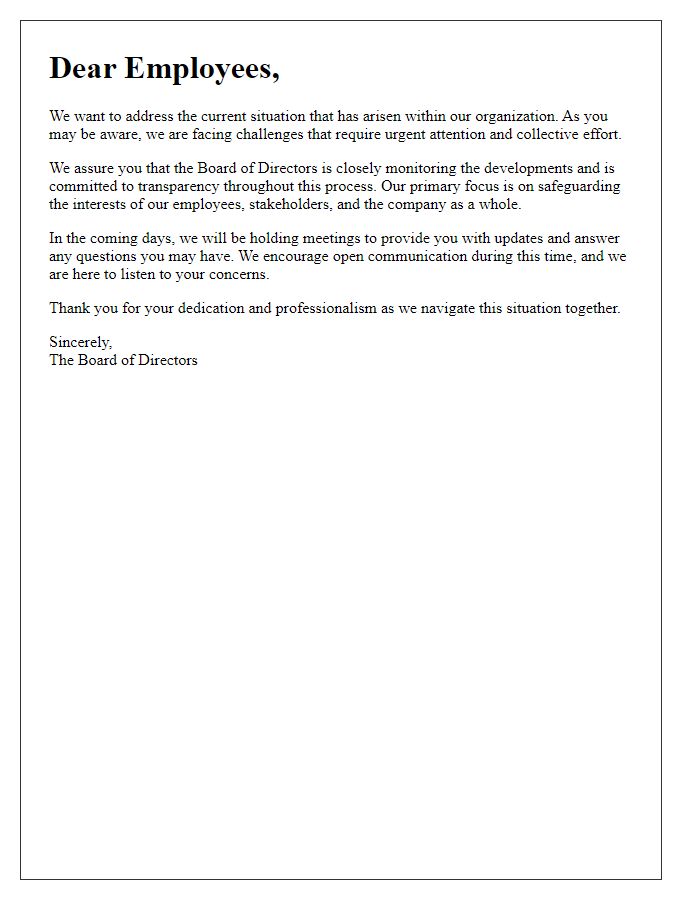
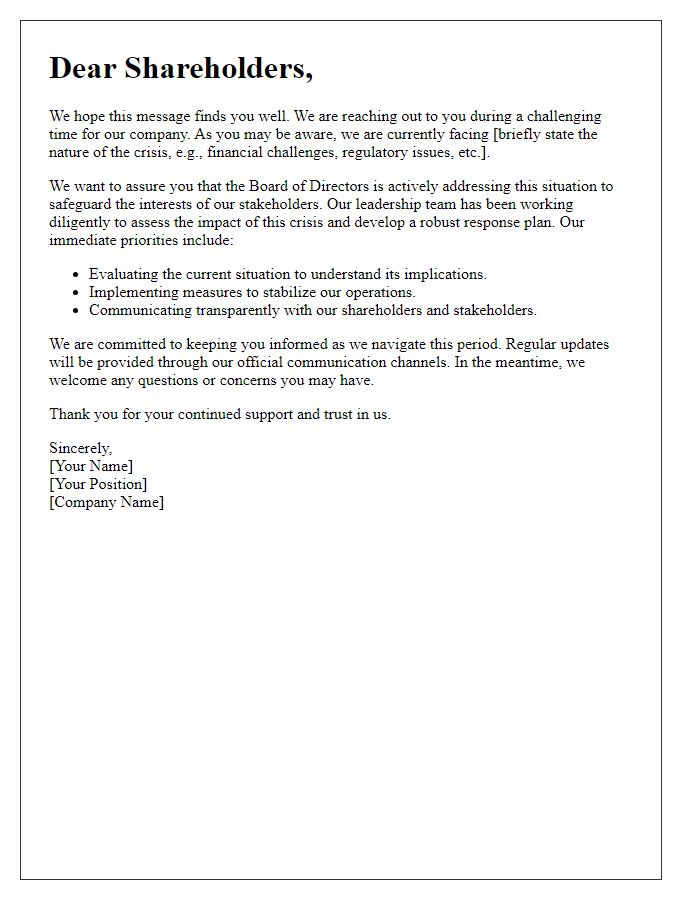
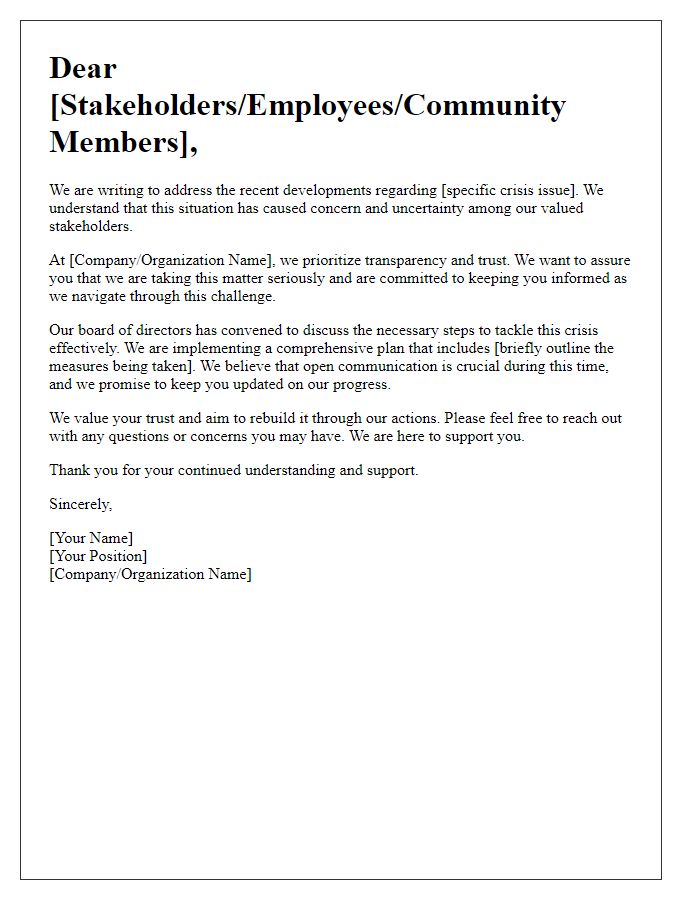


Comments